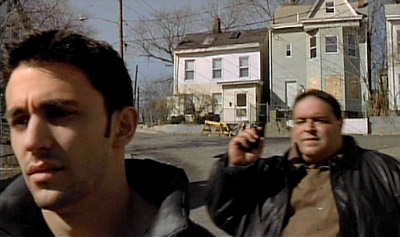 Season 3, Episode 13
Season 3, Episode 13
Written by David Chase & Lawrence Konner
Directed by John Patterson
Analysis:
It never failed that every year a season of The Sopranos aired, someone would write, the day afterwards, that “The Sopranos ended with a whimper this year.” As I wrote regarding season 2’s go-for-the-jugular “The Knight In White Satin Armor,” The Sopranos liked to put its big deaths and big action in the penultimate episode of each season. “Army of One” is arguably one of the most emotionally taxing Sopranos episodes, but after the blood spattered, sometimes furiously cynical 3rd season, “Sopranos ends with a whimper” was the headline the day after it aired – even with poor Jackie Jr. (Jason Cerbone) lying dead in a pile of snow in the Jersey projects.
I remember thinking, back then in May of 2001, when I finally finished watching the third season of The Sopranos that this was perhaps the most perfect season of television that I’d ever seen. Some of that came back to my first understanding of The Sopranos command of details – that in their Christmas episode “To Save Us All From Satan’s Power,” a small detail of AJ’s scooter comes up three times and has no relevance anywhere else in the episode; it was only relevant in that it mattered in Tony’s day to day life that we got to be a part of. Even more than that, The Sopranos third season aired in the Spring of 2001, but began just before Fall semester for Meadow at Columbia, featured a Thanksgiving episode and a Christmas episode, and ended, during “Army of One,” as Sylvio, Christopher, and Patsy Parisi get arrested for Super Bowl bets.
It was a clever move, and the focus on times of the year would be elaborated upon in future seasons, but it truly began here, with its great feel for seasons, heat, cold. Cerbone, for whom I’m shocked didn’t become a big star after this season, looked so lost and small inside of his puffy gray winter coat, despite his large guido physique. The episode opens with two contrasting scenes of “juniors” – AJ and his friend Egon peeing in a school boiler room before trying to steal the answers to a science test, and then followed with Jackie and his friend at a gun dealer’s apartment (played by The Wire’s Michael K. Williams, rocking Omar’s great facial scar before it was cool). Jackie is 23 in the episode and AJ 15, but both are still such children. Both have the names of the mobsters who begat them, but both are juniors through and through. Jackie had just made a move on a card game – much like Tony and Jackie Sr. had done at his age – but with disastrous results; this kid is still playing dress up.
Children, or at least parenting, was the subject of the third season, as was most evident in the great season 3 episode “University,” which I wrote about previously. In that episode, a 19-year-old stripper named Tracee is beaten to death by scumbag Ralph Cifaretto, and smart editing contrasts her life with Meadow’s privileged life. Meadow is a great focus of the season, but AJ’s plot contrasted with Jackie’s is a larger arc of the season, and more importantly, the notions of one generation’s standards giving way to the confusion of modern times. Tony says in The Sopranos’ pilot episode that he feels as if he’s come in “after all the good stuff,” and “Army of One” generalizes that feeling to the entire generation. This episode asks the question “what happened,” and theorizes that children have lost respect for their elders, that people no longer follow their institutions’ codes, and that everything’s gotten worse.
But it also poses a much smarter answer, spoken by a Major at a New Brunswick military school which Carmela and Tony consider sending AJ: “We’ve created too many options for our kids, you can’t blame them for being confused.” That is true, to an extent, of everyone – now with the whole world as a possibility, the rigid rules are given more scrutiny, and as Tony experiences in “Army of One,” it leads to uncertainty and self loathing. The Major tries to assuage Tony and Carmela that they don’t inspire mere groupthink by informing them (two years ahead of its actual implementation in print ads) that the Army’s new motto is to be “an army of one.” “Why be an army at all?” Carmela asks. Look what it leads to. Tony, at least, finds an answer in the military – a certainty that breaks the loathing he’d feel leading AJ into a life in the Family he just couldn’t handle.
The fact that Tony’s experiencing this is an interesting point in and of itself, because he’s arguably the only person with control on what’s going on. Early in the episode, Jackie calls Tony crying for support, and asks him to think of his father. Tony hangs up on him, and obsequiously tells Ralph (Jackie’s “stepfather,” as he’s officially dating Rosalie Aprile, despite having numerous affairs) “You know all this, you’re a captain. Chain of command is very important in our thing,” tacitly telling him to keep Jackie from calling Tony crying. Carmela calls Tony crying at the Bing, and we assume it’s because she’s gotten news of Jackie – but it isn’t, it’s news of AJ getting expelled for cheating.
As Tony and Carmela fight with AJ at home, we’re drawn back into the everyday morass of parenting a difficult teenager. Tony slaps AJ for a quick rebuke – he complains that he, like so many fathers before him, “work(s) hard all day to pay for this: 6,000 sq. ft. house, big-screen TVs, food on the table, video games, all sorts of scooters and bicycles… Columbia University. And for what? To come home to this?” “Sucks to be you,” AJ responds. It isn’t until the three of them sit down again to eat that Carmela gets the news of Jackie’s death and rushes to be by Rosalie’s side. “You see?” Tony asks AJ.
“You see?” Those words are simple, but they seem to echo everyone’s desire to keep the kids away from the life they’ve had. Tony had told Jackie all season that his father had wanted him to “be a doctor,” although, he and Uncle Junior discuss this episode what an idiot Jackie had always been (“Is being stupid a learning disorder?” Tony asks his uncle). We see Jackie’s pictures at his funeral – a sweet, goodlooking football star for his high school. Yet here he is in a coffin? He, like AJ, can’t last in his family’s business, but he’s too spoiled for the actual world. “In the end, I failed him,” Tony tells Dr. Melfi conclusively. Maybe his whole generation did, or maybe Jackie failed himself. Maybe a little of each.
In any case, if parenting is the theme of the season, then the real focus of season 3 has been Meadow – we see her lose her virginity, date and be heartbroken from a mobster, and begin to create ambitions that make her parents proud – leaving Jersey. As Tony puts her desire to be a pediatrician, “The important thing is that she get far away from me. Well she could live close.” This, coupled with a later question to Dr. Melfi regarding AJ, “How are we going to save this kid?” are two of the toughest lines Tony’s had to utter as a parent. That last one is made even worse by a quick cut to Jackie Jr.’s coffin being unloaded from a hearse.
In the way that parents sometimes look at their somewhat-grown children and marvel at how they got to the place they’re at, The Sopranos takes growing children to a new level of intimacy in this episode in observing Meadow. She’s such a fascinating mixture of loyalty, wisdom, immaturity and understanding. She gets drunk with Jackie’s younger sister, Kelly, who begins to insinuate that Jackie’s death was mob-related in front of a distant cousin. Now, Meadow had made this same accusation to her mother earlier in the episode (“People have to get X from somewhere,” she says dismissively of Jackie’s alleged drug ties). This time she takes Kelly to task – “The fact that you would even joke about this, in front of an outsider is amazing to me. Some loyalty?” Yet later, in the car with Carmela, Meadow is both respectful and spiteful of her parents’ nature.
So much of the struggle of independence and “family” is represented in Meadow, whose very name suggests the dreams and peaceful hopes of her parents. In the episode’s most famous and argued over sequence, a loose, drunk Junior begins to sing an Italian ballad called “Ungrateful Heart” at Jackie’s memorial, being held at Vesuvio. While the Family watches reverently, a looser, drunker Meadow begins throwing bread at Junior, and breaks out laughing, singing the title of Britney Spears’s “Oops! I Did It Again.” Tony chases her outside, before she yells “This is bullshit!” and races across traffic. When Tony comes back in, he says to Carmela merely, “I guess she went back to Columbia.”
There’s a metaphor to be had of Tony chasing Meadow into traffic, and her winding up on the other side, far away, towards safety. Certainly the clash of generations in the Vesuvio sequence is clear. Some have argued it’s too clear, but it would also be clear to Meadow, who understands enough of what’s occurring to know she needs to reject the whole culture that raised her. She’s not done with her conflicts of self yet in the series, but she does know the past is not for her. This is sad for Tony, but ultimately he knows it’s right – Meadow’s made her way out of danger, and now they have to save the other ungrateful heart they’re responsible for. That won’t be done with any method his family and he have tried in the past, and AJ will only be getting more confused the older and more entitled he becomes.
Some scenes you may have missed:
There are four clever touches in this episode that show the extraordinary depth of character The Sopranos employs – in four ridiculous ways.
First, Patterson employs a terrifically off-kilter angle to shoot Paulie’s head as he leaves his mother in Green Grove, the “retirement community” responsible for so much of Livia Soprano’s agita. Nucci Gaultieri is beloved by Paulie, but she’s a ludicrous figure, and Paulie’s bizarrely excessive defensiveness of her is one of his quirkiest characteristics. Here, he’s shot from underneath, as if the camera is jutting far out from his stomach, a great vision of his nostrils and hair flairs – what better way to show someone who’s a sinister, sometimes comic vision of mob obligation.
Second, Janice at the funeral home throws a CD of “Christian contemporary music” to the pastor in his office. “I wish I had something like this at my mother’s own funeral,” and claims that Tommy Mottola will probably sign them soon.
Third, Ralphie, that master of scumminess, complains during a sit-down that he’s been needing to avoid Ro – “all that crying” makes it too difficult to sleep. After Jackie’s funeral, too, he goes straight to the chair to watch college football. What a stepfather.
Finally, Tony, complaining of the “putrid fucking rotten” Soprano gene in therapy mentions a great-great grandfather in Avellino who, out of depression, drove his mule cart off the road. Carmela will mention this in passing during a fight in the final season’s “The Second Coming.” Tony whines quite a bit, eh?
And one final bit of continuity I love. Tony’s final words in the Season One finale, “I Dream of Jeannie Cusimano,” have come up at various times in the series, and here, Meadow remembers them as important – but incorrectly and attributes them to the wrong person. “That thing you said once about remembering the times with the people that are important to you,” Meadow recalls. “Actually, your father said that,” Carmela corrects her. In the series finale, AJ reminds Tony of saying that, and Tony, as many of us would, says “I said that?”
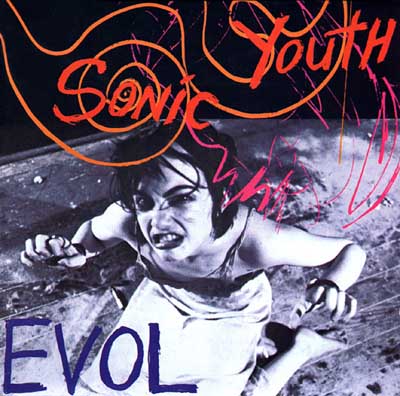
 it was trite, sarcastic neo feminism (“I’m just a girl, oh little old me”), maybe it was the promise of ska packaged in a pop confection, but certainly something took hold for No Doubt in 1996, the year in which Tragic Kingdom sold 16 million copies worldwide. With the benefit of hindsight, we can say pretty conclusively that Tragic Kingdom was one of the most successful albums of the decade – not just because it spawned mega-hits “Just A Girl,” “Spiderwebs,” and “Don’t Speak,” but because it launched an empire, brought ska into the mainstream, made Gwen Stefani a superstar, who, both in 1996 and onward, influenced fashion endlessly, and simply, defined that period of the 90’s – angry but still bubbly, wild and defiant… but not that wild. I remember buying Tragic Kingdom at a Target in 1996, learning all the songs by heart… then just a few months later learning to despise the whole thing as too popular.
it was trite, sarcastic neo feminism (“I’m just a girl, oh little old me”), maybe it was the promise of ska packaged in a pop confection, but certainly something took hold for No Doubt in 1996, the year in which Tragic Kingdom sold 16 million copies worldwide. With the benefit of hindsight, we can say pretty conclusively that Tragic Kingdom was one of the most successful albums of the decade – not just because it spawned mega-hits “Just A Girl,” “Spiderwebs,” and “Don’t Speak,” but because it launched an empire, brought ska into the mainstream, made Gwen Stefani a superstar, who, both in 1996 and onward, influenced fashion endlessly, and simply, defined that period of the 90’s – angry but still bubbly, wild and defiant… but not that wild. I remember buying Tragic Kingdom at a Target in 1996, learning all the songs by heart… then just a few months later learning to despise the whole thing as too popular.
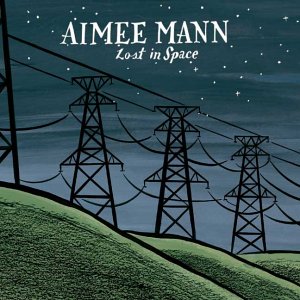

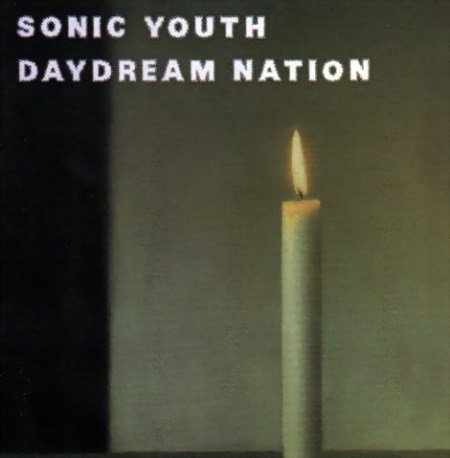
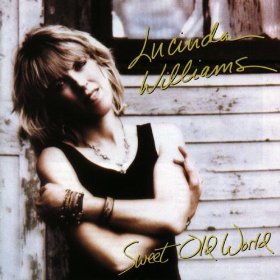 I did write about Sweet Old World some years ago, when I realized what a warm and extraordinary collection of songs it was. I loved how pure, how simple a song like “Something About What Happens When We Talk” could be – exploring the loneliness that lurks between two people who think so fondly of each other. I loved that she made tire irons and casseroles sound sexy in the rollicking yodel classic “Hot Blood.” Now, I hear something else also – it’s 17 years later into Williams’s career, where she first indulged her country muse to great perfection in Car Wheels on a Gravel Road, and then remade our understanding of desire and loneliness in aging from Essence even through her “happy” 2008 release Little Honey. Sweet Old World is as much of an evocation of her consciousness at the time as any of those records are.
I did write about Sweet Old World some years ago, when I realized what a warm and extraordinary collection of songs it was. I loved how pure, how simple a song like “Something About What Happens When We Talk” could be – exploring the loneliness that lurks between two people who think so fondly of each other. I loved that she made tire irons and casseroles sound sexy in the rollicking yodel classic “Hot Blood.” Now, I hear something else also – it’s 17 years later into Williams’s career, where she first indulged her country muse to great perfection in Car Wheels on a Gravel Road, and then remade our understanding of desire and loneliness in aging from Essence even through her “happy” 2008 release Little Honey. Sweet Old World is as much of an evocation of her consciousness at the time as any of those records are.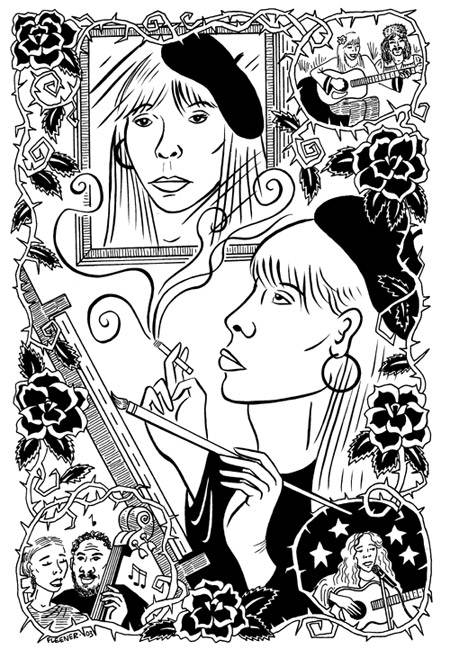 Even Joni Mitchell had to find the right words to explain her 1979 album Mingus, a jazz collaboration with the great jazz bassist Charles Mingus, and an album whose greatest ambition was to be… well, “sketchy,” was what one Rolling Stone article described it as. The songs sort of ramble laconically, melodies buried when present at all. Mitchell later called the record a “work in progress,” proud of its structural looseness. I think it’s hard not to reach a similar conclusion while listening to the record, but at the same time, all looseness has the ability to turn into form over time. Lucinda Williams has an unreleased song called “Sundays” at the end of the special edition to Lucinda Williams and swears it’s unfinished – I don’t think the song could be more perfect.
Even Joni Mitchell had to find the right words to explain her 1979 album Mingus, a jazz collaboration with the great jazz bassist Charles Mingus, and an album whose greatest ambition was to be… well, “sketchy,” was what one Rolling Stone article described it as. The songs sort of ramble laconically, melodies buried when present at all. Mitchell later called the record a “work in progress,” proud of its structural looseness. I think it’s hard not to reach a similar conclusion while listening to the record, but at the same time, all looseness has the ability to turn into form over time. Lucinda Williams has an unreleased song called “Sundays” at the end of the special edition to Lucinda Williams and swears it’s unfinished – I don’t think the song could be more perfect.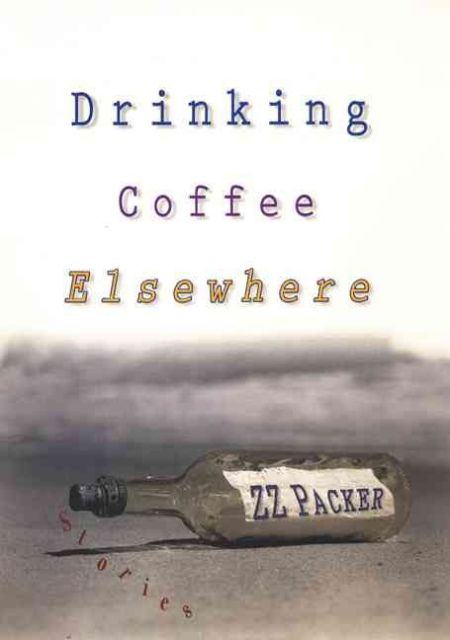 “Freedom is attained only when the ant of the self – that small, blind, crumb-seeking part of ourselves – casts off slavery and its legacy, becoming a huge brave ox.” A small, black teenage narrator named Spurgeon hears this bit of wisdom, as if in passing, at the Million Man March in “The Ant of the Self.” He notes with boredom and anger that the preacher speaking is repeating a message heard earlier, and reading from a letter read earlier, about ways to keep slaves down – by pitting dark ones against light ones, big plantations vs. small plantations, etc.
“Freedom is attained only when the ant of the self – that small, blind, crumb-seeking part of ourselves – casts off slavery and its legacy, becoming a huge brave ox.” A small, black teenage narrator named Spurgeon hears this bit of wisdom, as if in passing, at the Million Man March in “The Ant of the Self.” He notes with boredom and anger that the preacher speaking is repeating a message heard earlier, and reading from a letter read earlier, about ways to keep slaves down – by pitting dark ones against light ones, big plantations vs. small plantations, etc.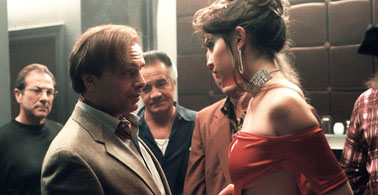 “University”
“University”